By now you have possible heard and read about the New York Times story by David Segal, which talks about how JC Penney cheated Google’s ranking system to become the number one spot for several keywords and phrases.
David Segal contacted me in mid of January about a “dresses” link to the JC Penney website on this blog. At first I was highly skeptical if this is some sort of joke. A little research later and I was ready to talk to David. Over a day or two I explained to him, how that “dresses” link appeared on my website, who put it there, for how long it was there and why somebody would put links like them.
I have a rule: If you get caught, tell everything.. And I am somebody who likes to share my learnings and knowledge. So why not share what I know with David then and with his readers now?
The Who
I use a system called TNX.net. They are like a marketplace for buying backlinks and selling adspace. As a publisher (website owner) I include a little PHP script to my website or WordPress installation. This scripts then connects to the TNX servers and requests links to be included to the current website. Those links are then included as HTML in my blog. What this means, is that it is without knowledge of the PHP code not possible to determine, if the links were added manually or with any kind of system. This makes the links viewable for the Google Indexing Bots. But for this to work, those links are expected to not have the rel=”nofollow” tag defined. The idea of the nofollow-tag is, that if a website owner/editor/writer links to another website, the nofollow-tag tells the indexing bots to ignore and not follow those links. If used, the whole TNX and paid backlinks eco-system would not really work.
The Why
The TNX system trades points for each link added to the publishers website. Some links on cocaman.ch generate 9 points/month, others up to 810 points (see “Google Testing Platypus“, my most successful entry).
This blog currently hosts 307 links. So over 100 links less then in mid January.

These points can be exchanged in two ways:
- You can either request a payout. Every TNX point is worth $0.95. The money is transferred to your PayPal account.
- You can exchange your points for own backlinks.
I only did the second option. I am an experimenter. In the past couple of years I played with different things. And for such things to be successful, you need traffic and users. Because most of website users come from search engines, you need to rank very high for a given keyword. So I used the TNX system myself to create backlinks to my site. I exclusively used it for my cooking websites. TNX offers you a small convenient wizard, which sets up your backlink texts including anchor text, the amount of backlinks you want and how many TNX points you want to spend per month.
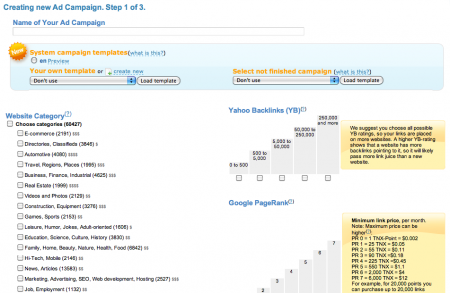
From here on the system is automatic. It now distributes your backlinks on the sites, which fit your selection (eg. category, Google PageRank, …). After a couple of days you can log in to TNX and check out the results.
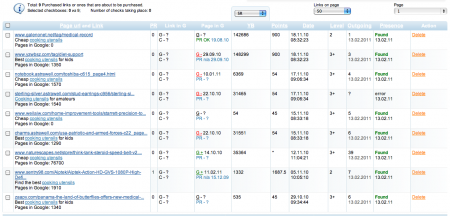
A total of 9 backlinks was placed to my site. Not so much. But at its highest, I had a couple of hundred backlinks. And this worked very, very good. In a highly competitive query with over 2 million results, I have managed to grab the positions around #6 on Google and position #2 on Bing. And this over a long period of time.
You see, the “playing Google” system is pretty effective. For me personally this is of course good and bad. Good because I could make a few dollars a month while being a full-time student. On the other hand, as a Google user (and fan) this is worrying me. Very often it happened that I did not get the results I was actually looking for. And I really hope Google can fix the whole “black hat SEO game”. Including those eHow, HuffPo, Demand Media guys, who do this kind of search engine optimization on a much, much larger scale.
As promised, I will remove all those links from my websites and blogs. I knew it was wrong. I knew I can get caught. But as so often, you tell yourself “nobody will notice” and “oh that ain’t so bad, others do the same”. But I got caught and burned. Of course Matt Cutts is right, I violated Google’s guidelines. Of course they can and possible will drop me from their index. But differently than others, this is not my business, it is only a hobby and a learning experience for me. I am just a small fish.
JC Penney got burned to. And their agency SearchDex got burned. Have you checked out their website? Last news was from 2007, were they talk about signing up JC Penney for four years. Funny, the contract is up next month. Hey, I am just saying ;-).
Final words. Congratulations to David Segal of the New York Times on this great article. I have never expected it to be such a long article, with so many interview partners and technical details. And it is good to see that Google tries to fight shady black hat SEO. It is of course pretty hard, but I believe in the smart people at Google to solve or dramatically reduce the problem.
Lesson Learned
If you have any questions, please don’t hesitate and add your comments and input.
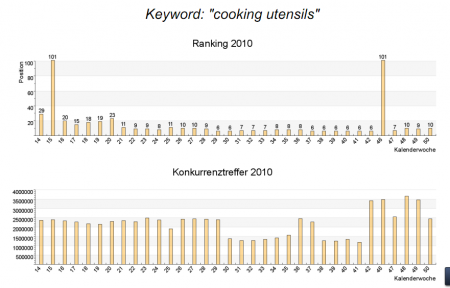
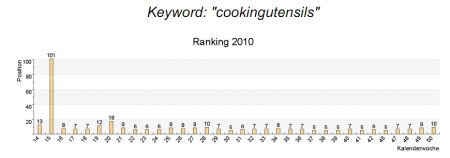

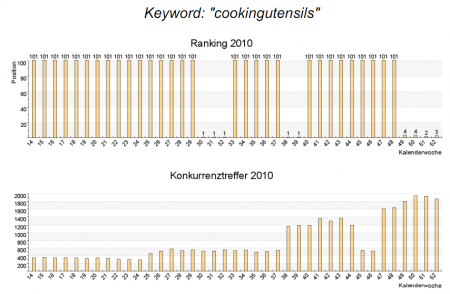
David Segal should open an SEO consultancy firm. lol.
Playing the system gives you some advantages, but not for long term. The good thing is, you only get the google slap – as Segal put it – black hat is not illegal.
Well, Google can actually slap pretty hard 😉
Should black hat be illegal? And if so, what should be the consequences?
I wouldn’t feel so bad about what you did. You are an entrepreneur no different than the google execs. Who cares if google blacklists your website, change the name and start over. Until google decides to pay off Congress, this isn’t illegal, and probably never will be outside the US. Of course, if you piss them off enough they may get Sweden to drum up some child porn chargers against you.
The fact that google can blacklist a web site that it considers in violation of its “guidelines” is very discerning. I’m surprised PayPal isn’t blacklisted for its role. Maybe google would get better output if they wrote a better algorithm, instead of attempting to regulate input.
Douchebag…. Don´t act like selling links is such a bad thing. If you look for “dresses” any of the big retail sites is just fine. They all have a broad selection in stock. So what is wrong with one of those sites using an agressive SEO strategy? Survival of the fittest… Fact of the matter is: Google wouldn´t work without active linkbuilding. Some topics just don´t attract links because they are really, really boring and funloving geeks like yourself would never link back to them if not payed money. Do you really wanna see wikipedia and other stupid authority sites rank for EVERY single keyword there is? If im looking for “black dresses” I don´t wanna know about the history of the black dress or some crap. I wanna buy a black dress…
Google is just too proud to admit that their search algorithm only works for a certain kind of phrases. For some keywords linkbuilding does increase the quality of the search results.
Think about it… if you disagree with me you can put an unpaid link for “buy prostate medicine” on your website and be part of the solution ;-))
well said.
Those are arguments I’ve heard for 10 years. “all should be fair in SEO”. “Gaming search engines improves result quality”. “A search naming an item must be an intent to buy it.” I find those claims to be highly improbable, and in fact, I never hear them from anyone, except those who profit by getting somebody exposed in search engines. However I hear a great deal from Real Users exhausted by all the web-pollution. One was doing costumery and spent an hour searching for shoe styling circa 1870. Clearly not intent to buy. No query refinement would yield anything but Zappos affiliates – 200 results deep. This is what happens when “All’s fair in SEO”. And it definitely makes search worse.
In a civilized society, the answer to “skullduggery” is not “everyone else do skullduggery too”. We don’t need a web of non-legitimate links, commercial or not.
That’s just my opinion.
What tool is that you used for the “keyword position” graphs (Konkurrenztreffer…)? I use an Excel sheet manually for different sites and many keywords (but don’t fill it in very often because it’s so much work).
Hey Sam
I use http://www.private-ranking.de/ for this task. Once a year they publish a report over the whole year. See here. And once a week they update your keyword-rankings:
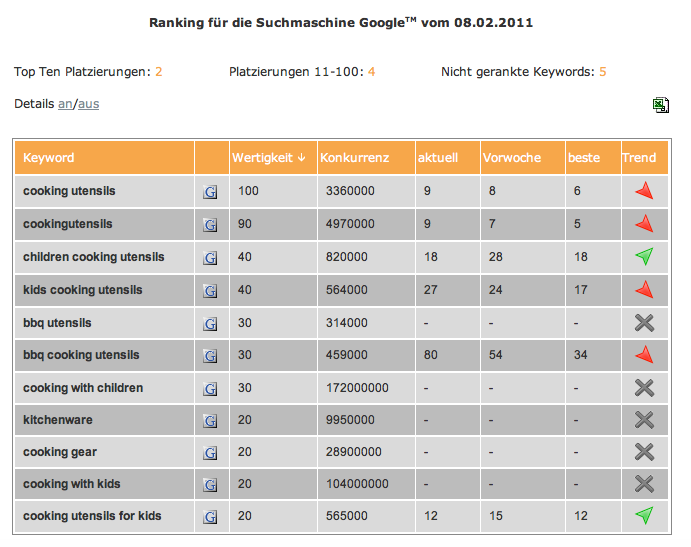
Thanks. It seems they don’t let people register for new accounts these days because they have reached their server limits and want to keep the service free. Would have been exactly what I would have needed it seems.
Shouldn’t such a service also think of how to finance it’s costs? Sometimes I think idealistic developers (“it has to be free”) are a bit naive when it comes to providing for the service’s needs. It does cost!
Matt Cutts is a self-righteous douche. Large organizations commonly do and have been doing for a long time exactly what JCPenney does and Google looks the other way. The only reason JCPenney’s got slapped down is because of the Times article. I’m an SEO guy and in my limited scope, I see the tops of the SERPs dominated by large organizations who are obviously participating in exactly the schemes described by the times. I dutifully send spam complaints to Google, but nothing ever happens.
In his book “The power of Pull” David Siegel suggests that search engines are not in business of providing relevant search results since it would limit their ad selling possibilities.
It is much better for them to sell ads to people who did not find what they were looking for…
thanks for your honesty and candor corsin
its refreshing to hear the ‘actual story’
Thanks for the entry. I read the article and, of course, immediately came by to visit you.